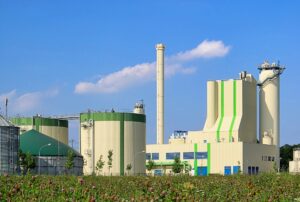FAU researchers pioneer biomass-based process for on-site methanol production

The process allows raw and waste plant materials such as pomace, grass cuttings, wood chips and straw to be converted into methanol without the need for energy-intensive drying, shredding or long-distance transportation to large gasification plants.
The research team, led by Dr Patrick Schühle from FAU’s Chair of Chemical Reaction Engineering, published their findings in the journal Green Chemistry.
Methanol is a widely used basic chemical and a promising energy carrier that can also serve as a drop-in fuel for existing vehicles.
Today, it is primarily produced from fossil natural gas – a method incompatible with long-term climate goals.
Current biomass-based approaches have relied on gasification at extreme temperatures and pressures, often requiring biomass to be pelletised before transport, driving up costs.
By contrast, FAU’s process can achieve carbon efficiencies of up to 80 per cent while enabling smaller-scale, decentralised plants.
“This process allows methanol to be produced in a more decentralised manner than was previously possible,” said Dr Schühle. “It could be worthwhile for large farms, forestry operations or agricultural cooperatives.”
The researchers incorporated an electrolyser into their design to generate the oxygen and hydrogen needed for the reaction, ideally powered by renewable energy such as photovoltaics or local wind farms.
Agrivoltaics, where farmland is used simultaneously for crop cultivation and electricity generation, is being explored as a complementary solution.
Economic modelling by the team suggests that green methanol could be produced at competitive cost compared to conventional fossil-based production, provided renewable energy is available at favourable prices.
“This means it could make a meaningful contribution to the defossilisation of our industrial landscape from an economic point of view,” added Schühle.
The FAU team has collaborated with OxFA GmbH, a Bamberg-based company recognised as a world leader in converting biomass into formic acid, to apply practical expertise to the project.


















